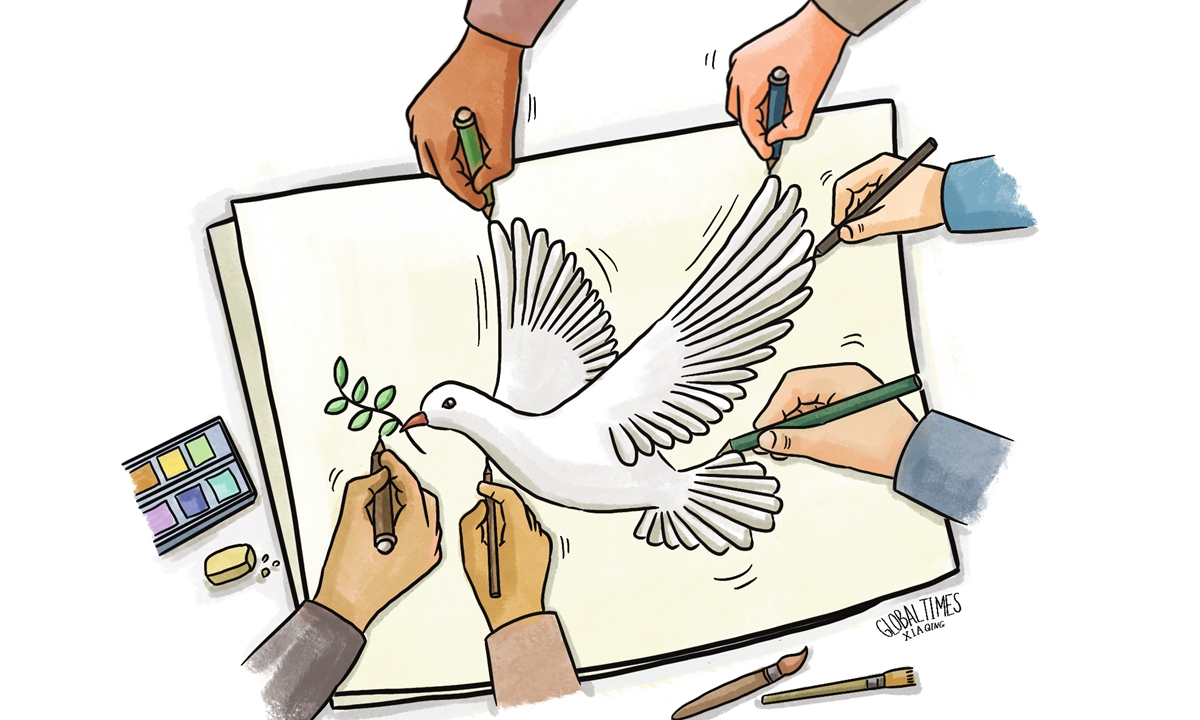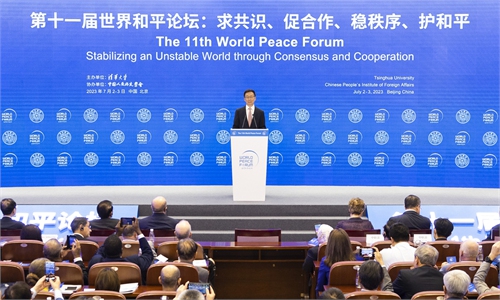China is taking very important steps in fostering a solution for Ukraine crisis: Nepali ambassador to China

Illustration: Xia Qing/GT
China has made a very good statement toward a common shared future, Nepali Ambassador to China Shrestha Bishnu Pukar said at this year's World Peace Forum (WPF) on Sunday.Currently, China is leading the world in various areas. For example, China has made significant statements regarding a community of shared future for mankind. This concept, introduced by Chinese President Xi Jinping, "has opened the eyes of the world that would like to work together on the sickness of the mankind, and we will have to be very honest for our future generation," Ambassador Pukar said in an interview with the Global Times on the sidelines of the WPF.
Ambassador Pukar also highlighted the significance of the Global Development Initiative, which recognizes that the current development trajectory is insufficient for the well-being of all humanity and therefore, it is crucial to reconsider our approach to development.
The Nepali ambassador noted that the Global Development Initiative has prompted governments worldwide to move on a path that emphasizes sharing resources and creating a win-win situation between two countries and two societies, thus fostering a strong friendship.
He also spoke highly of the China-proposed Global Security Initiative and Global Civilization Initiative. Both initiatives are of the utmost importance, he said. According to him, the Global Civilization Initiative is a concept aimed at connecting civilizations from different parts of the world, and through this initiative, civilizations will collaborate to promote peace and foster connections among people worldwide.
Regarding the peace plan for Ukraine proposed by China, Ambassador Pukar believes this is one of the very important steps that China is currently taking. "So far, we have seen peace being achieved through military force and power. However, China is presenting a program of cooperation and consensus, emphasizing the importance of working together to achieve a win-win situation," Pukar said. He noted peace cannot be obtained by one country alone; while power, money, or force may bring temporary peace, it is not sustainable in the long run. The key is to identify the root causes of the problem within a country, and once those causes are resolved, peace can be achieved, Ambassador Pukar told Global Times.
A notable example is the mediation by China between Saudi Arabia and Iran, which has led to the development of diplomatic relations between the two, he said, adding that China is also sending high-level officials to negotiate with Russia, which is another important step in addressing the Ukraine war.


